As a child, I remember thinking differently than my peers. I felt like an outsider. Like I was on the peripheral looking in at life happening around me. Sort of like watching a movie.

Photo by Ian Espinosa on Unsplash
By the time I reached junior high school, it worsened. I had confided in a school friend who would listen to me for hours while I lamented as tears ran down my face like a faucet.
I somehow had the wherewithal at fourteen to find a therapist which I paid for with my allowance I had earned by ironing my father’s shirts. She had diagnosed me with dysthymia (persistent mild depression). I saw her weekly until she fell asleep in one of our sessions.
In my late teens, I remember things becoming more pronounced. One day I would wake up full of energy and be ready to take on the world, and the next, I would feel utterly hopeless and depressed. There was no explanation for these extreme shifts in mood.
The fluctuating moods were accompanied by my loyal companions; fear, dread, worry and guilt. I didn’t know at the time I was struggling with anxiety until I had experienced my first panic attack in my late twenties.
By that time, I had become impulsive and spontaneous. I would feel a surge of energy pulsate through my body like electricity which made me feel invincible. There was so much I wanted to do and accomplish that I wouldn’t sleep.
I took unnecessary risks and made bad decisions that if it wasn’t for the grace of God, I’m sure things would have ended badly.
I was enthusiastic, adventurous and lived for the thrill of excitement. Everything I did was over the top, exaggerated and extreme. I flirted with danger because I was addicted to the adrenaline rush and loved the exhilarating feeling it gave me.
In this state, everything seemed alive and vibrant. Life was good.
Until it wasn’t…
It was only a matter of time until the dreaded crash came. I went from being high to drowning in a sea of hopelessness and sinking into a quicksand of despair. Everything around me became devoid of color; a still life black and white photo; grey, lifeless and dull.
The rollercoaster high’s and low’s kept happening, combined with an ever present restlessness and gnawing irritation, like stew simmering in a crockpot or a rumbling car motor that never seems to shut off or a dormant volcano brewing beneath the earth’s surface.
I lived like this for years not knowing why.
Fifteen years ago, things came to a head after giving birth to my eldest son. I had suffered from postpartum depression. My son was colic and would cry all night. I wasn’t getting any sleep and worked a stressful job. Between the lack of sleep and stress, I began to spiral. It was then that a therapist suggested I get evaluated by a psychiatrist.
After an hour and a half hour of what felt like an interrogation, I received the verdict. Her words shot out like fists punching my face.
I didn’t believe her, so I went for a second opinion and was given the same diagnosis.
********
After years of hiding behind the shame and living in silence, I decided to come out.
I’m a Christian who suffers with chronic pain and physical and mental illness. And I am not alone. There’s plenty of people out there struggling like me, who lurk in the shadows because of shame and fear of being found out.
They vacillate between denying their illness, pretending away their illness or praying away their illness, thus refusing treatment they so desperately need.
Instead, they self-medicate by either drinking, drugging, eating, spending or sexing.
*******
I’m speaking specifically to Christians right now, if you are struggling with mental illness, don’t allow the church or anyone from church tell you mental illness is a spiritual problem because it isn’t. Please don’t listen to anyone who tells you, you lack faith or you must have unconfessed sin or that you aren’t praying or fasting enough.
Mental illness is not a spiritual condition, but a medical one that needs to be treated like diabetes or cancer.
Please contact your local National Alliance for Mental Illness (NAMI) and get support. You don’t need to suffer in silence or struggle alone.
*******
Silence is the result of stigma and judgment by family members, friends, co-workers, church members, and society in general who aren’t educated and misunderstand, misinterpret, and marginalize those who suffer from mental illness or any invisible illness.
*******
Truthfully, these past two years have been the most difficult for me. My life has completely changed and it’s been hard for me to reconcile and adjust to. Believe it or not, it’s taken me over 15 years to finally accept my diagnoses.
I didn’t want to come out because most people walking around react to words like bi-polar, OCD or schizophrenia as a joke or they associate it with characters from “Psycho,” “One Flew Over the Cuckoo’s Nest,” or “A Clockwork Orange.”
This is why I’ve kept it hidden for so long, but now I no longer want to because there’s too many people suffering in silence. For this reason, I chose to come out and join the tribe of other voices advocating and fighting against the stigma.
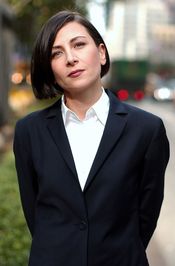
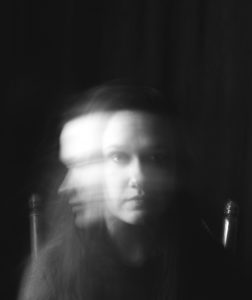

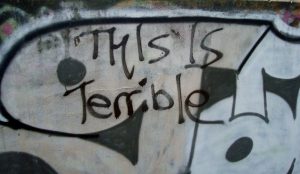

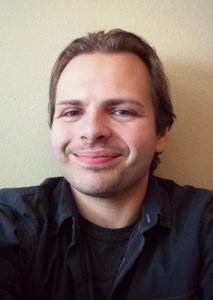
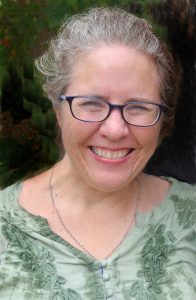

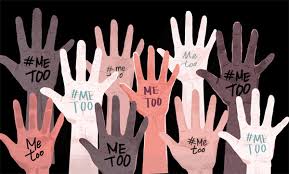
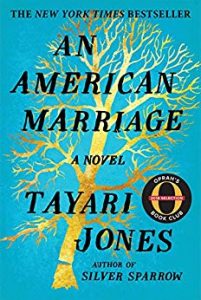 Publisher:
Publisher: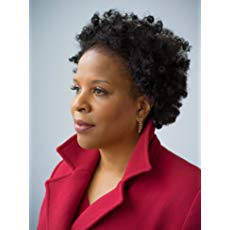 Tayari Jones
Tayari Jones I have been reading when I can, but not regularly. Nor am I reviewing books. However, I have been vlogging intermittently. You can feel free to subscribe to my YouTube channel if you would like (please click
I have been reading when I can, but not regularly. Nor am I reviewing books. However, I have been vlogging intermittently. You can feel free to subscribe to my YouTube channel if you would like (please click